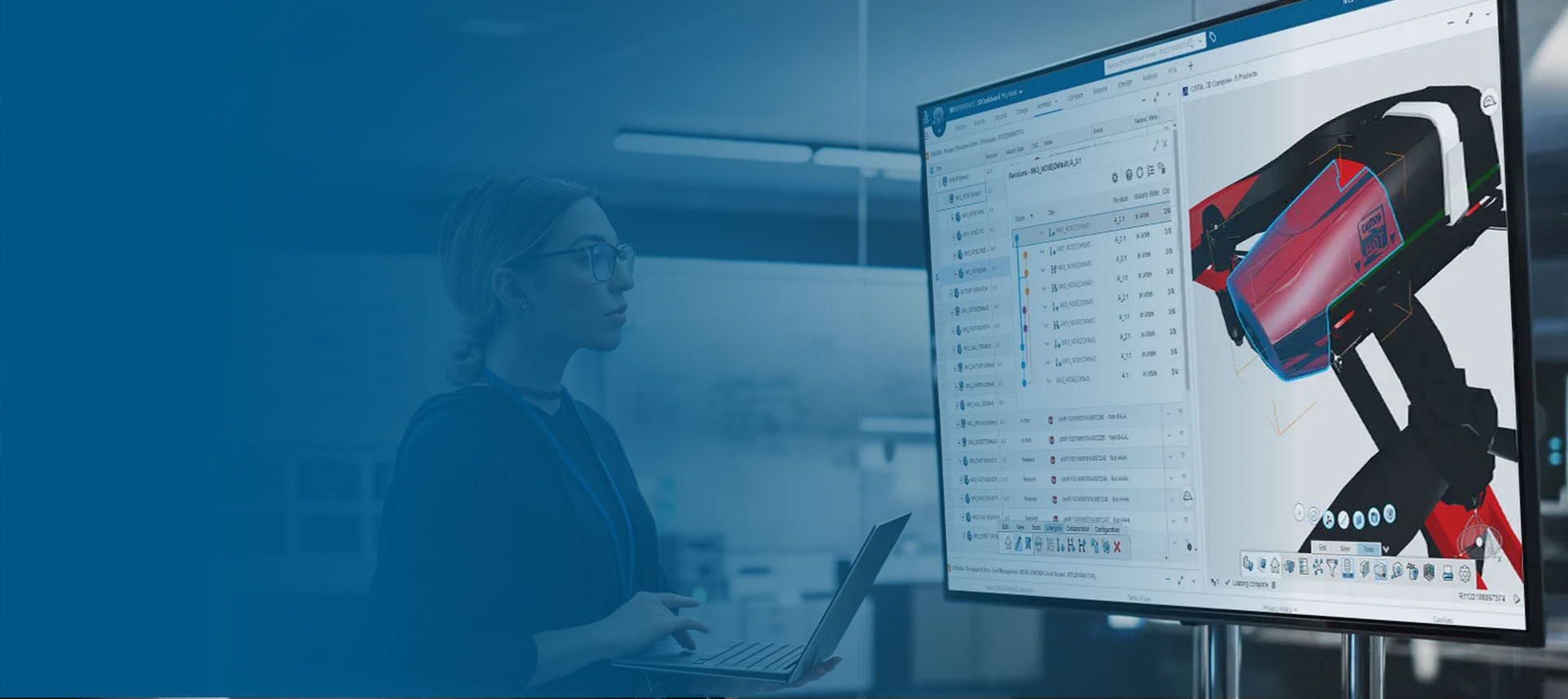Quality Management System
Improve compliance, efficiency and product quality with Dassault Systèmes’ Quality Management System (QMS) solutions.
What is a Quality Management System?
A Quality Management System (QMS) is a structured framework that standardizes processes to ensure product and service quality. It helps organizations comply with regulations and improves efficiency and customer satisfaction. By integrating a QMS, businesses achieve consistency so they can strive for operational excellence.
Key Benefits of a Quality Management System
Compliance and Risk Management
A QMS ensures adherence to industry regulations, reducing legal and financial risks. It provides a structured approach to meet compliance requirements and mitigate potential challenges.
Operational Efficiency
Standardized processes streamline organization workflows, minimizing waste and improving overall productivity. Automation and real-time monitoring improve decision-making and reduce errors.
Improved Customer Satisfaction
By maintaining quality manual standards, organizations will be able to meet customer expectations and build trust. A well-implemented QMS improves product reliability and customer loyalty.
Sustainability and Quality Management System
Sustainable Operations
A well-implemented QMS contributes to sustainability by minimizing waste, optimizing resources and ensuring regulatory compliance.
It helps organizations integrate sustainable practices into their operations for reduced environmental impact and long-term economic benefits.
There is a growing urgency to change our ways of production and consumption. We need to rethink everything. Using technology to solve problems more sustainably is an amazing opportunity that can be realized with the 3DEXPERIENCE® platform.
Quality Management System Across Industries
Various industries rely on a quality management system if they are to maintain high-quality standards and regulatory compliance.
Driving Innovation with Dassault Systèmes’ QMS Solutions
Leverage the power of Dassault Systèmes’ advanced solutions to streamline your Quality Management System
BIOVIA Quality Management
Automate and optimize quality processes to drive operational excellence. This solution improves traceability and process control and supports continuous improvement.
ENOVIA Total Quality Management
Use an integrated approach to manage quality policies across the entire product lifecycle. It connects teams, streamlines workflows and ensures product integrity from design to delivery.
DELMIAWorks Quality Management
Achieve manufacturing excellence with real-time quality monitoring and control. By integrating production data, businesses can proactively resolve issues and reduce waste
Experience the Real-World Value of a Quality Management System
Discover how leading companies have been using quality management software to strive for operational excellence.
Use Cases: Key Business Functions of a Quality Management System Software
A comprehensive Quality Management System enhances various business functions by ensuring quality and compliance.
Product Lifecycle Management
Ensures product consistency from design to production. It allows traceability and compliance tracking at every stage, reducing the risk of defects and recalls.
Supplier Quality Management
Monitors supplier performance to maintain quality standards. It streamlines collaboration between stakeholders, ensuring suppliers adhere to specifications and compliance requirements.
Regulatory Compliance
Automates compliance tracking and documentation. It reduces the risk of non-compliance through proactive monitoring, audit readiness and streamlined reporting.
Ensuring Product Quality & Compliance with Virtual Twins
At Dassault Systèmes, we believe that virtual twins are the cornerstone of the next industrial revolution. By providing a unique representation of complex systems and processes and connecting real life with virtual worlds, we provide our clients trusted environments to learn, innovate & operate, capitalizing on their knowledge & know-how.
Virtual Twin Experiences
Virtual twins complement Quality Management Systems (QMS) by enabling real-time monitoring, predictive analytics and compliance throughout the product lifecycle. They provide a closed-loop approach to quality training, detecting deviations early on and supporting continuous improvement.
By bridging the physical and digital, virtual twins help organizations achieve higher product reliability and better regulatory compliance while reducing costs.
Dassault Systèmes' Key Values in QMS
Innovation
Empowering businesses with cutting-edge QMS solutions.
Compliance
Ensuring regulatory adherence across industries.
Efficiency
Optimizing workflows and resource utilization.
Customer-Centric Approach
Delivering quality-driven solutions for enhanced satisfaction.
Sustainability
Supporting eco-friendly and resource-efficient practices.
Digital Transformation
Leveraging technology to revolutionize quality management.
Want to Go Further?
Discover how Dassault Systèmes can help you achieve quality excellence.
Get in Touch with Our Experts
Fill in the form to have a Dassault Systèmes expert contact you to answer your questions and discuss any of your needs.
Let’s transform your PLM journey together — contact us today!








